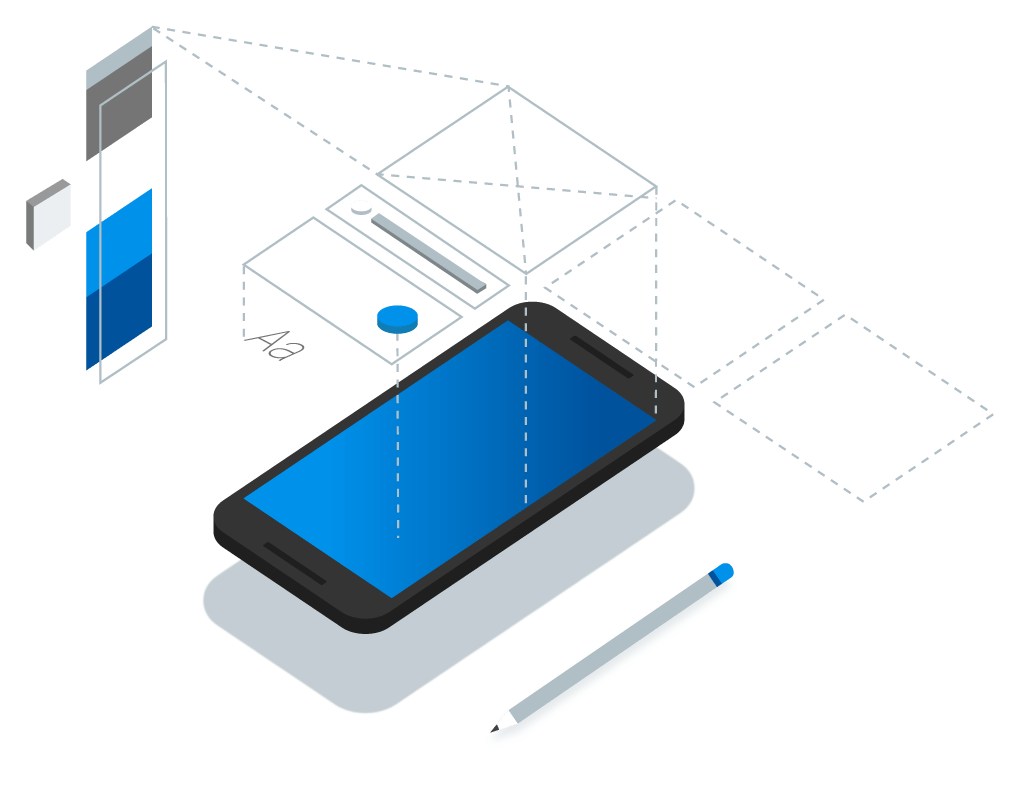The Pros & Cons of Flutter
As it is still relatively new on the market, Flutter is a still not yet a considerable decision for most of the entrepreneurs. We believe that this article will help you in clarifying if this technology is a suitable decision for your mobile app development project.
Flutter was represented by Google on the 12 of May as a cross-platform mobile application development solution based on Google’s SDK and Dart programming language and distributed on an opensource basis.
What is Flutter?
As we previously mentioned, it is a cross-platform mobile app development technology that is based on Google’s SDK, complete with a framework, widgets, and tools, that gives developers an easy way to build and deploy visually attractive, fast applications on both Android and iOS platforms due to the unified codebase.
Mainly, it is based on the object-oriented Dart programming language. The architecture in Flutter is pretty similar to a React Native one and it is based on reactive programming as well. Thankfully to the implemented widgets in Flutter, you can create top-notch mobile apps that will look and feel natively for both iOS and Andriod platforms.
Over the last 2 years, Flutter is growing rapidly and becomes a serious competitor to React Native.
Why choose Flutter? The main advantages
The reasons for Flutter mobile app development may vary for you depending on your sphere of interests. As for the application owners, business entrepreneurs or startup owners, the main reason will be the ability to speed up their application and reduce the overall app production costs. Still, here are the top 5 reasons for choosing Flutter as a core technology for cross-platform mobile app development:
1. Rapid code writing
With Flutter your developers can code faster thankfully to the implemented widgets and built-in SDK. It also allows making changes right away in the app while changing the code of it, which is further essential when bug fixing your mobile application. This is called Hot Reload, and it creates a lot of space for UI/UX designer’s and developer’s cooperation and experiments. However, there’s still a list of some restrictions, which is a common thing for all of the cross-platform mobile development tech. The full list of Hot Reload features and restrictions you can find here – Hot Reload Documentation.
2. Faster working mobile apps
Flutter allows creating faster and stable applications for multiple platforms while having a single unified codebase. You can create more optimized and smooth solutions with it compared to other cross-platform mobile app development technologies out there.
3. Better UI experience
The technology itself was created to give its users the ability to run and create customizable designs easily with already existing and create label widgets. Besides, with Flutter, your applications will still look the same even on the older devices. Flutter runs on Android Jelly Bean or newer, as well as iOS 8 or newer.
4. Faster mobile app QA process
Because of the one codebase for both iOS and Android platforms, you or your quality assurance team will spend less time on bug testing. Of course, it will work for you only if you have a similar application for both platforms.
5. Perfect for MVP
Minimum Viable Product is the best solution for startup entrepreneurs who need to have a working product as soon as possible to attract investors to their project.Because of previously mentioned features, Flutter is one of the best decisions for the MVP mobile development.

The main disadvantages of Flutter in 2019
While being an attractive decision for startups and the availability of using a wide variety of features, it still has some disadvantages. Here are the biggest disadvantages that you should be aware of:
1. Small community & short amount of libraries
Due to being new on the market, Flutter is still growing and the amount of libraries and the size of its community is small compared to other cross-platform development solutions. Google impressively supports Flutterm but still a short amount of libraries will require your developers to do build some needed features themselves, which could be a time-consuming factor. However, the community itself grows rapidly, and the amount of libraries is just a matter of time.
2. Lack of experienced developers
Due to being relatively new technology, it may be hard for entrepreneurs to find the right Flutter development provider. For every technology on the market, you need to seek a contractor with enough expertise and it may be more difficult when looking for an expert in relatively new technology. That is why we want to remind you how to find the right development partner, which we already posted about.
Conclusion and our recommendations
We believe that Flutter has a lot of potential in it and will be a growing trend in the nearest future because of its simplicity in use combined with high-quality user experience. With Flutter, you can rapidly build appealing UI with fast and stable workflow for iOS and Android platforms both in the shortest term compared to other similar cross-platform mobile app development solutions. Supported by Google it may be a future of cross-platform application development. So, if you are thinking about using Flutter as the main technology for your project – it is definitely worth it.
However, if you still have some doubts about this technology or looking for a qualified consultancy in the field of mobile app development – contact us!
OS-System. We build your ideas.

Subscribe to us










